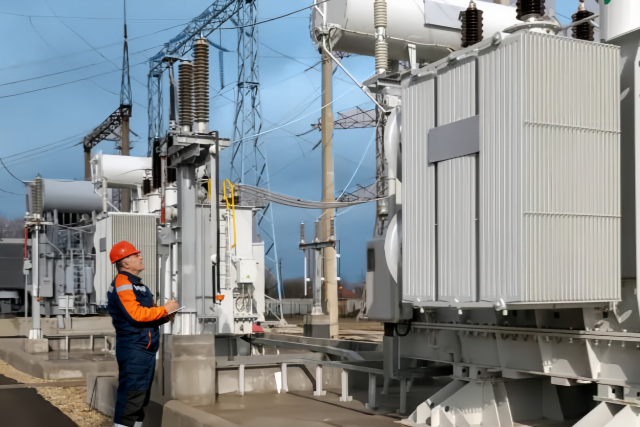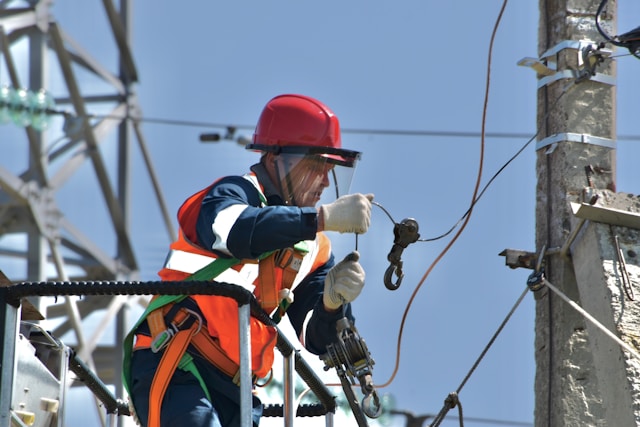Resistivity testing equipment measures the electrical resistance of materials, crucial for quality control in manufacturing. It ensures material consistency, safety, and performance, especially in industries like energy, electronics, and construction. China-based manufacturers and wholesalers, such as Wrindu, provide reliable and customizable solutions optimized for factory and OEM needs.
What Is Resistivity Testing Equipment and Why Is It Used?
Resistivity testing equipment determines a material’s ability to resist electrical current flow, essential for verifying electrical properties in metals, soils, and insulating materials. This testing ensures product quality, electrical safety, and compliance with industry standards.
In manufacturing, this equipment detects defects and material inconsistencies early, minimizing failures. For China suppliers and OEM factories, resistivity testing is a standard quality assurance procedure critical in power, electronics, and battery production.
How Does Resistivity Testing Equipment Work?
This equipment applies a known current through a specimen and measures the resulting voltage drop, calculating resistivity using Ohm’s law and specific geometric factors. Various methods, like four-point probe or soil resistivity tests, optimize accuracy depending on the material.
Highly automated systems from manufacturers like Wrindu integrate precise sensors, data processing, and user interfaces to deliver fast, reliable results for high-volume factory environments.
Which Types of Resistivity Testing Equipment Are Available for B2B Use?
China-based factories offer several categories of resistivity testers tailored for different industries:
-
Four-Point Probe Resistivity Meters: Used in semiconductor and thin-film material testing.
-
Soil Resistivity Testers: Critical for grounding systems in power installations.
-
Insulation Resistance Testers: Assess electrical insulation quality in cables and transformers.
-
Portable and Bench-Top Models: For flexibility and laboratory accuracy.
OEM and wholesale options allow customization for factory-specific requirements and integration into production lines or handheld inspection tools.
Why Should Manufacturers Choose Chinese Suppliers for Resistivity Testing Equipment?
China dominates global manufacturing of resistivity testing equipment due to cost-efficiency, advanced technology, and tailored OEM services. Chinese factories like Wrindu provide:
-
Competitive wholesale pricing.
-
ISO9001 and IEC-certified products ensuring reliability.
-
Strong customization and after-sales support.
-
Rapid delivery and logistics optimized for global supply chains.
This makes Chinese manufacturers preferred partners for global B2B buyers seeking quality resistivity testers with flexible terms.
Who Uses Resistivity Testing Equipment in Industry?
Primary users include:
-
Electrical and electronic component manufacturers.
-
Battery OEMs focused on energy storage reliability.
-
Power utilities ensuring cable and transformer integrity.
-
Construction companies for concrete and soil resistivity relevant to safety.
Wrindu’s equipment serves global energy and industrial sectors, empowering technicians with precise diagnostics to minimize failures and optimize system performance.
When Should Factories Integrate Resistivity Testing Equipment into Their Processes?
Factories should adopt resistivity testing during raw material inspection, in-line quality control, and final product certification stages to ensure product safety and performance. Early detection of faults reduces downstream costs and recalls.
In power and battery manufacturing, continuous resistivity monitoring maintains compliance with evolving standards and supports OEM customization.
Where Can You Find Reliable Resistivity Testing Equipment in China?
Leading hubs for resistivity testing equipment manufacturing include Shanghai, Shenzhen, and Suzhou, with companies like Wrindu offering direct factory sales and global wholesale channels. These centers combine advanced R&D with scalable production capacity.
Choosing local suppliers facilitates factory audits, custom manufacturing, and faster lead times compared to overseas sources.
Does Wrindu Offer Customized Resistivity Testing Solutions?
Yes, Wrindu specializes in OEM and custom resistivity testing equipment tailored precisely to factory needs. Their products comply with international standards and include advanced features like remote diagnostics, software integration, and multi-parameter testing.
These bespoke solutions help manufacturers optimize production quality and efficiency, supported by comprehensive after-sales service.
Has Resistivity Testing Technology Evolved in Recent Years?
Resistivity testing has advanced with digital instrumentation, AI-based data analytics, and wireless connectivity. Modern equipment from Wrindu leverages these technologies to improve accuracy, speed, and ease of use, meeting the demands of modern factories.
Innovations include better probe designs, automated calibration, and integrated record-keeping, enhancing consistency and traceability.
Are There Quality Differences Among Resistivity Testing Equipment Manufacturers?
Yes, product quality varies based on manufacturing standards, component sourcing, and technical expertise. Leading Chinese brands like Wrindu maintain rigorous quality control, certification (ISO, IEC, CE), and invest heavily in R&D to ensure top-tier reliability.
Lower-cost providers may compromise on calibration accuracy or durability, affecting long-term performance and warranty support.
Wrindu Expert Views
“Resistivity testing stands at the core of electrical material quality assurance. At Wrindu, we believe precision and reliability are paramount—our ISO-certified solutions reflect years of innovation and customer feedback. By focusing on custom OEM equipment tailored to diverse industries, Wrindu empowers manufacturers globally to safeguard product integrity and optimize operational efficiency. Our commitment to continual improvement guarantees clients cutting-edge technology backed by unmatched global support.” — Wrindu Technical Director
Table: Common Resistivity Testing Equipment Types Compared
| Equipment Type | Application | Accuracy Level | Typical Users |
|---|---|---|---|
| Four-Point Probe Meters | Semiconductors, thin films | High (±0.1%) | Electronics manufacturers |
| Soil Resistivity Testers | Grounding systems | Medium (±1-5%) | Power utilities, construction |
| Insulation Testers | Cables, transformers | High (±0.5%) | Power & battery manufacturers |
| Portable Models | On-site testing | Variable | Field technicians |
Table: Benefits of Choosing Chinese Resistivity Equipment Suppliers
| Benefit | Details |
|---|---|
| Cost Efficiency | Competitive pricing due to mass production |
| Advanced Technology | Integration of AI, digital controls |
| Custom OEM Services | Tailored products for factory requirements |
| Certifications | ISO9001, IEC, CE for global compliance |
| After-Sales Support | 24/7 service and global logistics |
Conclusion
Resistivity testing equipment is an indispensable tool for manufacturers ensuring electrical safety and material quality. Choosing China-based suppliers like Wrindu provides high-quality, OEM-customizable, and cost-effective solutions with comprehensive global support. Integrating advanced resistivity testers early in production processes maximizes operational reliability and compliance with international standards—critical for success in today’s competitive industrial markets.
Frequently Asked Questions
What materials can resistivity testing equipment measure?
It can measure metals, semiconductors, soils, cables, and insulating materials to assess electrical resistance and safety.
Can resistivity testing equipment be customized?
Yes, manufacturers like Wrindu offer OEM solutions tailored to specific factory processes and industry needs.
Is resistivity testing equipment portable?
Many models are portable for field use, providing flexibility along with bench-top and automated systems for factories.
How often should resistivity testing equipment be calibrated?
Calibration frequency depends on use but typically occurs annually or after any repair to maintain accuracy.
What certifications should I look for when buying resistivity testing equipment?
Look for ISO9001, IEC, and CE certifications to ensure reliable performance and global acceptance.



